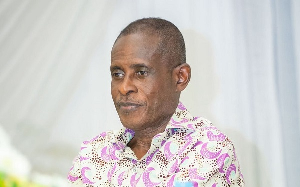Accra, April 13, GNA - A National Early Childhood Care and Development (ECCD) Coordinating Committee was on Wednesday inaugurated to see to the implementation of the ECCD policy, designed for the holistic development of children.
The 17-member Steering Committee is made up of representatives from the Ministry of Women and Children Affairs (MOWAC); Ministry of Education and Sports; Ministry of Manpower Development, Youth and Employment; Ministry of Health and Ministry of Local Government and Rural Development.
Other members of the Committee are from the Ghana National Association of Teachers; the University of Education, Winneba; and the Recognised Association of ECCD Practitioners as well as other co-opted supporting members.
The Committee is charged among other things to, establish and bring into operation a national programme for research; monitor and evaluate ECCD policy programmes; ensure co-ordination of effort among those providing ECCD service, especially in the training of caregivers; and make provision for and mobilisation of resources for ECCD programmes within its budget.
They are also to examine current laws as they affected families and young children and to make recommendations for amendment where necessary and as well as to facilitate the synchronization of relevant aspects of the policy into existing sector policies and programmes upon its adoption.
Hajia Alima Mahama, Minister of MOWAC, who inaugurated the Committee, said a national secretariat had been established within the Children's Department of the Ministry to be used by the Coordinator of the Committee.
She expressed the hope that with the Committee now in place, dissemination of activities of the Policy would be on course in the whole country.
She said before the inception of the ECCD policy, early childhood education in Ghana was on cognitive development and the inclusion of services like immunization, weighing and nutrition at cr=E8ches, day care centres, nurseries and kindergartens.
However, "the new approach to ECCD in today's world is to formulate comprehensive policies and programmes for children from birth to age eight", she noted.
Hajia Mamaha said the ECCD would serve as a strategy for poverty reduction, explaining that, it was considered an opportunity to invest in young children as a means of addressing the problem of poverty, which would translate into an improvement in the standard of living of Ghanaians in the long run.
Ms Dorothy Rozga, Country Representative of the United Nations Children's Fund (UNICEF), commended the Government for taking such an initiative to develop a policy that would solely take care of the development of children, whom she described as part of the human resource.
She advised that the ECCD should be linked with the new initiative to free Ghana of malnutrition in order to have healthy children. She further pledged UNICEF's support to the Committee in the implementation of the policy, advising that the policy must run at par with the tenets of the Ghana Poverty Reduction Strategy (GPRS). Mr Madeez Adamu-Issah, on behalf of the Committee, pledged their commitment to work hard to ensure the survival, development and protection of the Ghanaian child.
General News of Wednesday, 13 April 2005
Source: GNA
Cttee on Early Childhood Devt inaugurated
Opinions











